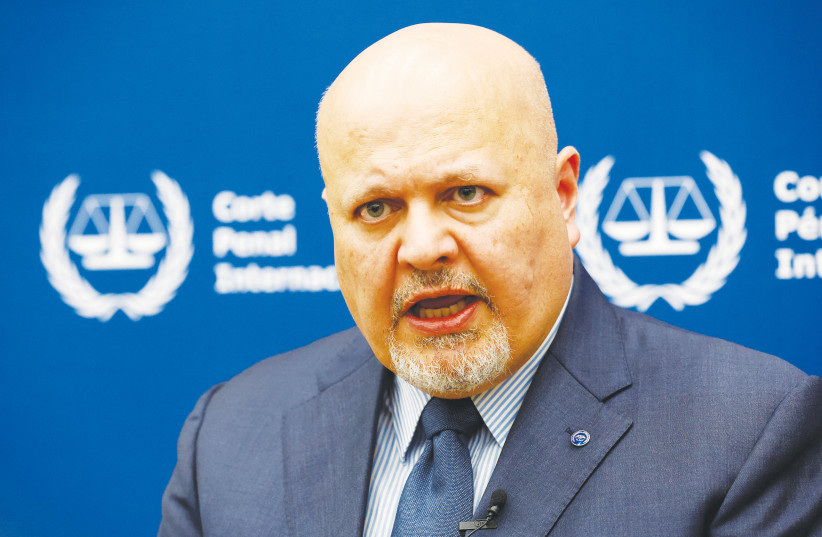The International Criminal Court Pre-Trial Tribunal on Thursday postponed its decision-making process about whether it will allow ICC Prosecutor Karim Khan to issue arrest warrants against Prime Minister Benjamin Netanyahu and Defense Minister Yoav Gallant for alleged war crimes.
The postponement came following a June 10 application by England to file a “friend of the court” brief against the ICC’s jurisdiction over the issue.
Thursday’s ruling not only granted the UK’s request to intervene; it also granted in advance the right of other countries to intervene.
The ICC gave England and other countries until July 12 to file their briefs.
Furthermore, the ICC said their briefs and the entire debate process could be made public, even though arrest-warrant proceedings are generally kept secret to avoid alerting the suspect.
The three-judge panel ruled: “Whilst the following must not be understood as an open call by the Chamber for amicus curiae submissions, the Chamber acknowledges that the Request, and the Chamber’s decision to grant the United Kingdom leave to file observations, may result in other requests to submit observations.

To limit the impact of this procedure on the expeditiousness of the present stage of the proceedings, the Chamber indicates already in the present decision that any such requests pursuant to rule 103(1) of the Rules must also be received by 12 July 2024.”
Delay could last months
Following the ICC decision, the entire arrest-warrant process could easily be pushed off for months.
Not only Israel but also the US and other Israeli allies have opposed the ICC’s jurisdiction over Netanyahu and Gallant on a variety of grounds. US President Joe Biden said the ICC’s involvement against Israel was “outrageous.”
While Khan sought arrest warrants against Netanyahu and Gallant in May, he also filed warrants against Hamas’s top three leaders, including its Gaza head, Yahya Sinwar.
